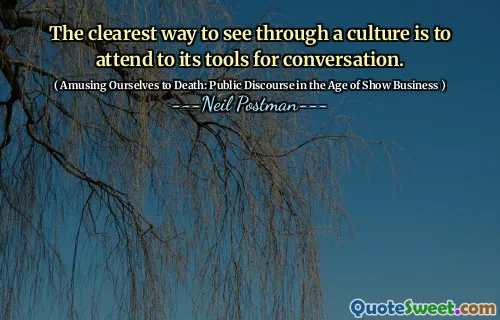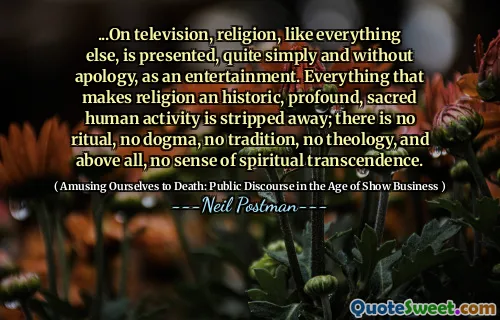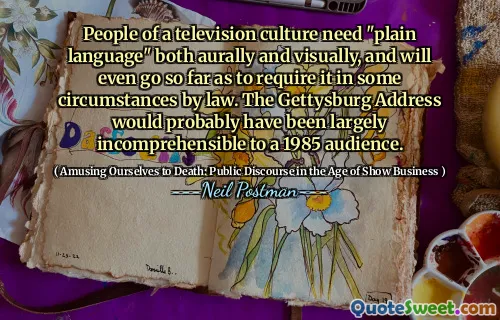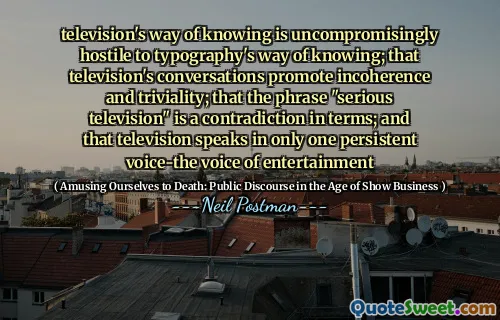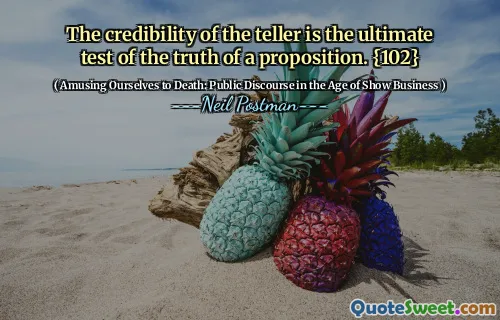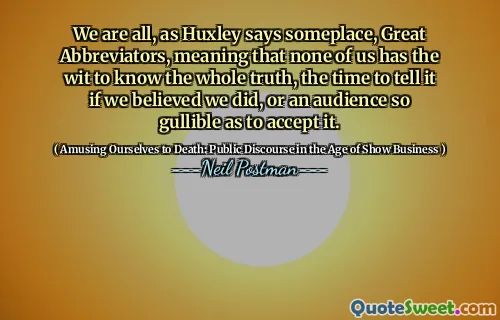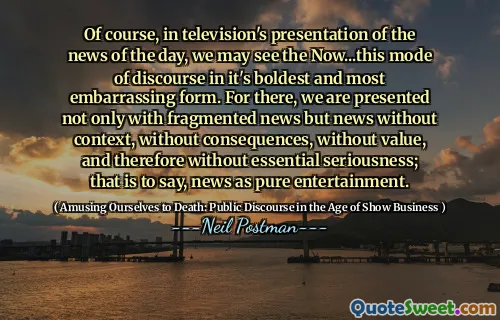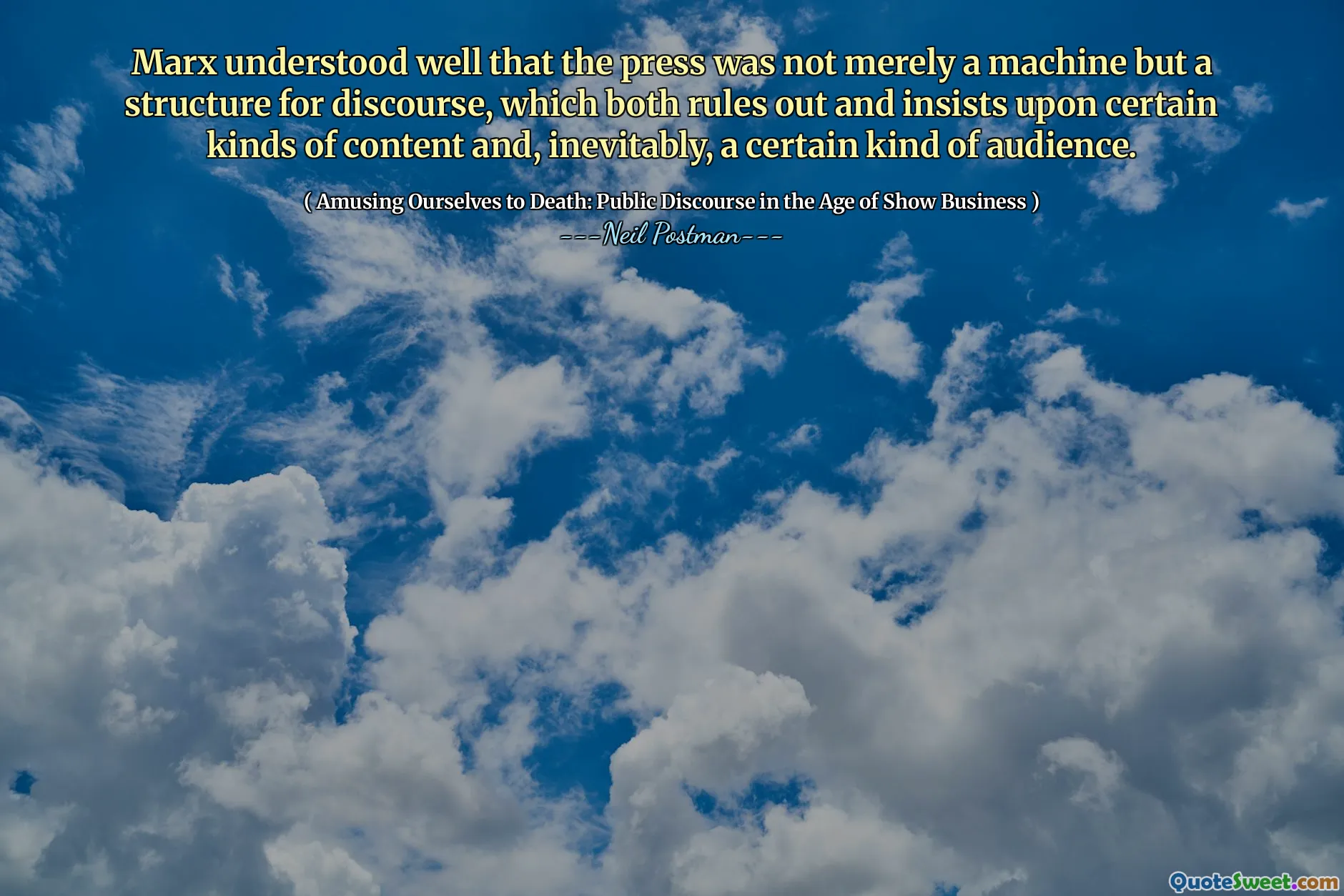
Marx understood well that the press was not merely a machine but a structure for discourse, which both rules out and insists upon certain kinds of content and, inevitably, a certain kind of audience.
In Neil Postman's "Amusing Ourselves to Death," he highlights Marx's insight into the press as more than just a tool; it functions as a framework for communication that shapes what can be discussed and who is involved in the discussion. This understanding emphasizes the power dynamics inherent in media, as certain narratives are promoted while others are marginalized, influencing public discourse.
Postman argues that the structure of the press creates boundaries around dialogue, guiding both the content that is disseminated and the audience it reaches. This perspective encourages readers to critically assess not just the messages conveyed through media, but also the underlying architecture that governs these exchanges, stressing its impact on society's engagement with important issues.
